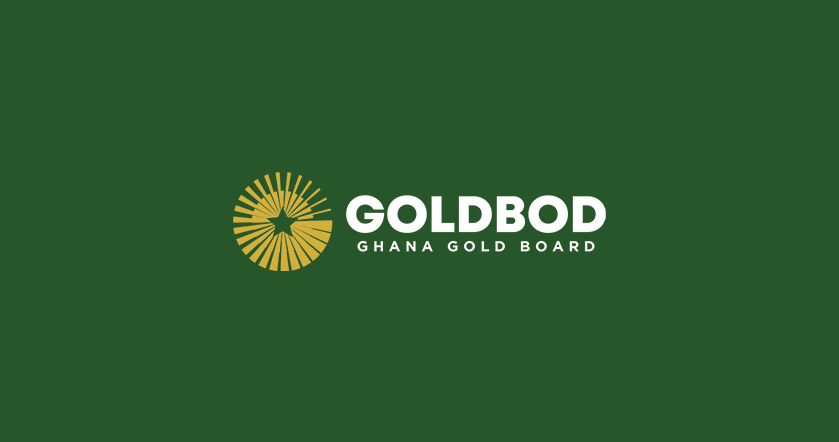Licensed Gold Buyers (CLGB)
The Chamber of Licensed Gold Buyers (CLGB) commends the Ghana Gold Board (GoldBod) for its remarkable leadership in transforming Ghana’s artisanal and small-scale mining (ASM) sector into a more formal, productive, and sustainable pillar of the national economy.
Within just months of its establishment under the Ghana Gold Board Act, 2025 (Act 1140), GoldBod has undertaken bold strides toward achieving one of Ghana’s most ambitious mining sector reforms in decades.
Formalisation and Traceability in the ASM Value Chain
For years, Ghana’s ASM sector — employing over one million Ghanaians and supporting nearly five million livelihoods indirectly — operated largely outside formal structures.
This informality fostered smuggling, environmental degradation, and the loss of millions of dollars in state revenue each month. With the establishment of GoldBod in April 2025, the government took decisive action to reverse this trend.
GoldBod has now become the sole legal aggregator, assayer, and exporter of all gold produced by licensed ASM operators, ensuring traceability from mine to market.
The Board’s centralised aggregation and purchasing system has drastically reduced smuggling and improved the traceability of gold production — a historic step toward transparency and accountability in Ghana’s gold value chain.
All artisanal and small-scale mining licences issued under previous regimes have been reviewed and revalidated under the new GoldBod framework, a move that consolidates oversight, curbs illegal mining, and strengthens responsible sourcing.
Rising ASM Output and National Gold Production
The results of GoldBod’s reforms have been tangible and impressive.
Within the first four months of 2025 alone, GoldBod officially purchased and exported 41.5 tonnes of ASM gold, valued at approximately US $4 billion.
According to official data from the Board. Ghana’s total gold production reached 4.8 million ounces in 2024, up from 4.0 million ounces in 2023, with ASM accounting for 1.9 million ounces — a 70 percent increase from the previous year.
The ASM sector now contributes an estimated 39 percent of national gold output, compared to 28 percent in 2023.
These gains have been achieved through improved compliance, fairer market pricing, and greater access to formal markets.
The Chamber notes that through GoldBod’s transparent pricing regime, ASM producers can now receive up to 98 percent of the world market price for their gold, significantly reducing the incentive to sell through illegal channels.
Strengthening Ghana’s Economy and Gold Reserves
Beyond production, GoldBod’s impact extends to Ghana’s broader macroeconomic stability.
The Board’s domestic gold
purchasing and export framework has helped boost the Bank of Ghana’s official gold reserves to 37.06 tonnes as of
September 2025, representing a 21.3 percent increase within the year.
This growth supports the Bank’s Gold-for-Reserves and Gold-for-Oil programmes, strengthening the cedi and improving
Ghana’s foreign exchange position.
The inflow of legitimate gold exports through GoldBod has also increased fiscal
revenues and curbed the systemic losses previously caused by smuggling — estimated at over US $1.5 billion annually before these reforms.
Strengthening Ghana’s Economy and Gold Reserves
Beyond production, GoldBod’s impact extends to Ghana’s broader macroeconomic stability.
The Board’s domestic gold purchasing and export framework has helped boost the Bank of Ghana’s official gold reserves to 37.06 tonnes as of September 2025, representing a 21.3 percent increase within the year.
This growth supports the Bank’s Gold-for-Reserves and Gold-for-Oil programmes, strengthening the cedi and improving Ghana’s foreign exchange position.
The inflow of legitimate gold exports through GoldBod has also increased fiscal revenues and curbed the systemic losses previously caused by smuggling — estimated at over US $1.5 billion annually before these reforms.
Support for Responsible and Sustainable ASM
GoldBod’s reforms are not limited to regulation and trade. Through its US $1 billion Mining Support Programme (MSP), the Board is financing environmentally responsible ASM operations, geological surveys, and the introduction of cleaner mining technology.
The CLGB particularly welcomes GoldBod’s emphasis on training and capacity building for miners, aimed at improving recovery efficiency, environmental management, and occupational safety.
These measures align with Ghana’s commitment to the Minamata Convention on Mercury and its broader national agenda for sustainable mining and environmental restoration.
A Model for Africa’s Gold Industry Transformation
Ghana remains Africa’s leading gold producer, and the GoldBod framework provides a governance model for balancing formalisation, revenue optimisation, and sustainability in the ASM sector.
By integrating artisanal miners into a regulated framework and ensuring that gold trade supports the national interest, Ghana has demonstrated how responsible resource management can drive inclusive economic growth.
The Chamber of Licensed Gold Buyers (CLGB) is proud to partner with GoldBod in this transformation journey
We reaffirm our commitment to upholding the highest standards of ethical gold trading, compliance, and value addition.
Together, we can build a mining sector that sustains livelihoods, protects the environment, and anchors Ghana’s position as a global leader in responsible gold production.
Conclusion
The Ghana Gold Board’s early achievements mark a turning point in the history of Ghana’s artisanal and small-scale mining sector.
Through its centralised systems, transparent pricing, formalisation of actors, and macroeconomic
contributions, GoldBod has laid a solid foundation for a responsible, high-value, and globally competitive gold industry.
The chamber of Licensed Gold Buyers commends the Government of Ghana and the leadership of GoldBod for this visionary reform and calls for sustained collaboration across all stakeholders to deepen the progress achieved so far.




